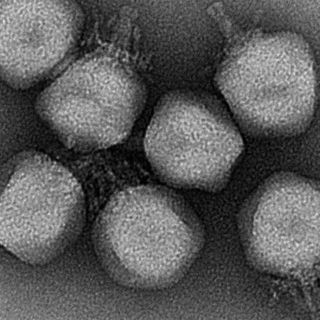A new study has found a link between oral sex and the occurrence of bacterial vaginosis, or BV.
While BV is not a sexually transmitted infection (STI) itself, it is a vaginal infection that increases the risk of developing STIs such as chlamydia and gonorrhea. An imbalance in the vaginal flora — the microorganisms present in the vagina, the amount and type of which have implications for an individual’s health — may cause BV. And yet, what causes the imbalance of healthy bacteria in the natural vaginal environment is not always clear. As Dr. Amanda Lewis from the University of California, one of the authors of the study, told BBC: “We know BV is a really complex entity with lots of contributing factors.”
Published this week in the peer-reviewed journal, PLoS Biology, the study suggests that oral sex may potentially contribute to BV. For the study, the researchers examined the link between growth of bacteria involved in the onset of BV, and Fusobacterium nucleatum, which is usually found in the oral cavity, and is a prominent component of dental plaque and associated with gum disease.
Related on The Swaddle:
The Vagina Is Perfectly Capable of Cleansing Itself, No Douching Required
After studying bacterial behavior in mice, as well as human vaginal specimens, the researchers noted that F. nucleatum appeared to aid in the growth of other bacteria implicated in BV. This finding led the experts to conclude that oral sex could be a potential trigger for BV. “Although it is not known how women acquire vaginal F. nucleatum, the ubiquitous presence of F. nucleatum in the mouth points to oro-vaginal contact as one plausible route of vaginal exposure… even if [F. nucleatum] are introduced at relatively low numbers,” the study noted.
In the past, a study published in the British Medical Journal had found that women who had received oral sex, both in hereosexual and homosexual encounters, were more likely to be diagnosed with BV. While that makes oral sex sound risky, experts believe that using devices like dental dams could help avoid the transmission of pathogens from mouth to vagina.
While it is speculated that factors like diet, or soap, or semen, can be linked to BV, medical experts are not clear as to why some of these factors lead to BV in some people, and not in others. The triggers of BV are still largely unclear. “This is a very interesting study which raises potentially important risk factor for [BV],” Dr. Anne Henderson, a consultant obstetrician and gynaecologist in the UK, who was not involved in the study, told The Sun.




